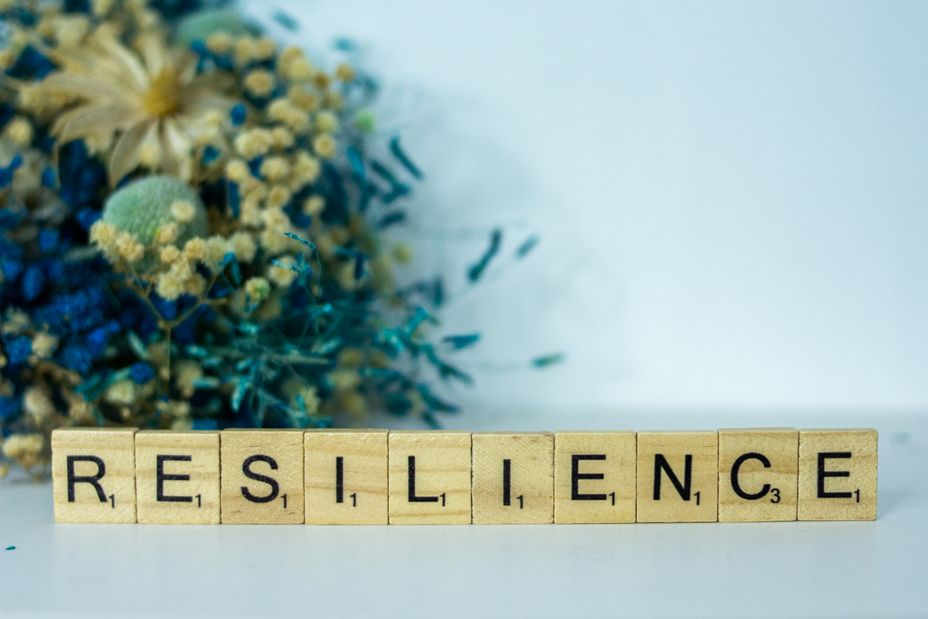resilience

🏢 The Potemkin Department of Wellness
Internal Memo — eyes only
BestGuessistan Bureau of Appearances and Performance
We regret to inform you that the Department of Wellness remains a Potemkin village.
The facades are gleaming.
Step counts logged.
Supplements sorted.
Affirmations whispered like bribes to a system we no longer trust.
All appearances suggest functionality.
But behind the surface: cardboard and collapse.
We are not well.
We are performing wellness.
We are tired.
Not sleepy-tired.
Soul-tired.
Structurally, existentially, capital-T Tired.
And yes:
When asked how we are, we say great.
When asked how we’re feeling, we say grateful.
When offered help, we say no thanks — I’ve got it.
Because here in BestGuessistan, performance reviews never end.
And we know the drill.
We optimize.
We over-function.
We disappear into deliverables and keep the dashboard green.
We are dangerously good at appearing fine.
As Barbara Ehrenreich warned: we are expected to be relentlessly upbeat — even in pain, even in crisis.
Wellness has become performance art.
And we? We’re headliners.
But by night, the beams sag.
The body mutinies in a dialect we never learned.
Flickering pain.
Fractured vision.
Static that drowns thought.
The CSATs have tanked.
The Brainjuice Bar is shuttered (out of juice) and the smoothie machine is weeping, both from condensation and exhaustion.
Every metric’s redlined.
Still, we show up.
Still, we smile.
Still, we perform.
Because in BestGuessistan, performance buys time.
And maybe — just maybe — belief.
This isn’t healing.
It’s high-functioning denial, dressed for work.
Until then, the Department of Wellness remains structurally unsound.
Visually compliant.
Spiritually on PTO.
The walls may be hollow.
But the banners are still flying.
Just don’t lean too hard.
It’s all held up by hope, habit, and whatever we had left in the tank.
Appearances@BG.gov is currently accepting inquiries, compliments, and denial.
Actual help, however, must be routed elsewhere.
#BestGuessistan #Burnout #resilience #WellnessPerformance #Satire #InvisibleIllness
For anyone living in a before-and-after world
Hi everyone —
I pulled together a starter pack of essays for anyone navigating life after rupture, diagnosis, loss, or disruption.
5 personal pieces on identity, survival, invisible disability, and the messy work of rebuilding.
If you’ve ever had a “before” and “after”… these are for you.
The Concussed CMO Starter Pack: Essays on Identity, Survival...
Would love to hear what resonates. 💙
#invisibleillness #resilience #neurodivergent #survival

This is Resilience🤩🦋👆The objective in my group Resilience and Mindfulness. Join Us. Follow Me.
For MORE-
Here’s the direct link to my group:
Looking forward to seeing you there!
Your friend in this hard thing called life,
Dawn
P.S.
Don’t forget about coming back in to this group frequently, read through all of the posts, and you can reply to Any of the posts to participate at anytime (it doesn’t just need to be around when I posted it)—
participating- by starting or joining in on a conversation thread in the posts is key to getting me to help You even more directly and is key to Your own growth in your journey, plus, You can also inspire others with your comments and replies.
#Depression #MajorDepressiveDisorder #PersistentDepressiveDisorder #MoodDisorders #MentalHealth #MotivationMonday #inspire #resilience

Resilience and Mindfulness | An Online Health Community

Embracing The Beauty of What’s Next - another great lesson from Brene Brown (for help with emotions as this new year begins and for thoughts beyond)
This is about choosing to look forward with hope and curiosity even when the path ahead feels uncertain.
To embrace the future, you must first accept that change is inevitable.
Life is a series of transitions and every ending, no matter how painful, creates space for a new beginning.
It’s easy to focus on what we have lost; to mourn the life we thought we’d have; or the plans that didn’t work out; but by fixating on what’s gone, we miss the opportunities unfolding before us. The beauty of what’s next lies in its potential; it’s the possibility of discovering something you’ve never experienced —- meeting someone who changes your perspective or stepping into a version of yourself you never imagined.
The future is not something to fear; it’s something to be curious about; what lessons are waiting for you; what dreams are yet to be realized; what joy is just around the corner?
Embracing the future requires a shift in mindset. It’s about reframing uncertainty as an adventure rather than a threat; yes, the unknown can be scary, it can make you feel unsteady and vulnerable; but it can also be exhilarating.
The greatest stories in life often come from stepping into the unknown; from daring to take a leap even when you don’t know where you will land.
Think of a time in your life when something unexpected Led to a positive change.
These moments remind us that life often works in ways we don’t understand in the moment, but they lead us to exactly where we need to be.
To embrace the beauty of what’s next, you also need to cultivate trust of yourself, and trust in the process of life.
Trust that you are resilient enough to handle whatever comes your way. Trust that even if things don’t go as planned, they can still turn out beautifully.
And trust that the challenges that you face are shaping you into someone stronger, wiser, and more capable.
It’s important to remember that moving forward doesn’t mean forgetting the past; the past is part of your story; it’s okay to carry it with you; but don’t let it hold you back; use it as a foundation to build upon, not a weight that keeps you anchored in one place.
Embracing the future also means staying open to possibilities— sometimes the beauty of what’s next doesn’t look like what you expected — it may come in the form of an opportunity you didn’t seek, a path you didn’t plan, or a version of happiness you never considered.
Being open means letting go of rigid expectations and allowing life to surprise you.
And finally, embracing the beauty of what’s next is about living fully in the present.
The future isn’t something that exists out there in the distance; it’s something you create moment by moment.
Each decision you make, each step you take, is part of shaping what’s to come.
Here’s to a Happy New Year 🎆🎊 🎉 Together, we will make it Great!
Your friend in this hard thing called life,
Dawn
#MentalHealth #Anxiety #GeneralizedAnxietyDisorder #MajorDepressiveDisorder #PersistentDepressiveDisorder #MoodDisorders #Depression #ChronicIllness #Disability #BipolarDisorder #BipolarDepression #EatingDisorders #SocialAnxiety #Agoraphobia #Selfcare #Selfharm #ComplexPosttraumaticStressDisorder #PTSD #Trauma #Grief #SuicidalIdeation #SuicidalThoughts #SuicideAttemptSurvivors #Suicide #ChronicPain #Mindfulness #resilience #Fibromyalgia #Migraine #POTS #ObsessiveCompulsiveDisorder #BorderlinePersonalityDisorder #ADHD #IfYouFeelHopeless #AutismSpectrumDisorder #CrohnsDisease #Addiction #AnorexiaNervosa #Relationships #Caregiving #FamilyAndFriends

An important reminder in this quote image
I have been a big, generous supportive friend and group leader of more than 1 group for years now on The Mighty and I hope 🙏 that our Mighty family is truly inclusive and a safe place for Jewish people as well.
I want to think that my Mighty friends on here would not think different or less of me for being Jewish.
I don’t want us to have to feel afraid or unsafe to be, say, express this part of who we are.
But, I have been seeing with deep hurt and sadness that we have been hiding, in the shadows, and this is obviously not helping with the same #MentalHealth that we too deserve.
Happy Hanukkah needs to be freely expressed too, and as well supported as Merry Christmas, for one example.
I refuse to have #Anxiety over being fully genuinely me.
And, I will not allow it to cause any darkness and isolation that is dangerous for my amazing progress with my healing journey and with my #Depression #MajorDepressiveDisorder
#ChronicIllness #MyCondition #WarmWishes #Jewish #Jews #MightyTogether #ChronicFatigue #ChronicFatigueSyndrome #Mindfulness #Selfcare #worth #Selfworth #Selflove #resilience #Selfharm #SuicideAttemptSurvivors #SuicidalIdeation #SuicidalThoughts #Suicide #ComplexPosttraumaticStressDisorder #PTSD #MyalgicEncephalomyelitis #PostTraumaticStressDisorder #Trauma #PersistentDepressiveDisorder #MoodDisorders

Leaning on knowing my Resilience -Personal Example
Yesterday to this morning for me is another example of why I am so thankful every day that I took the University of Pennsylvania’s online course on learning and applying resilience skills, so grateful that I typed up every single word that was taught, and that I recently started this group to share this critical knowledge from the actual people that researched this.
U. of Penn’s definition of Resilience is not only the ability to bounce back from adversity, but also the ability to grow from challenges.
In this course, Dr. Karen Reivich focuses on the psychosocial aspects of resilience. The aspects of resilience that are determined by your psychology, and by your social relationships and interactions.
So, yesterday was one of the rare days within recent years that 1) my fatigue completely took hold of me, and 2) my brain’s sleepiness was to the point that most of my brain would not wake up - all day- and I could see myself not able to function practically at all.
It’s not like this was the first time this ever occurred, and it’s always a possibility, but it is still very hard to watch myself go through this and it is also very hard to wake up from the next morning—the kind of “slap in the face” reminder that oh yeah, I live with a chronic illness that can at times, and I will never know when, will have me almost completely disabled.
So, this morning I woke up with this “setback.” And I look at it like I was brought to a “fork in the road.” And now while yesterday’s adversity was not in my control, this morning, which I always work to look at as a fresh, new day full of good possibilities, it was actually now in my control as to which way I let myself go in my mind at this “fork in the road.”
Of course upon waking up, my mind started on autopilot and took me the wrong direction. Then, the moments that I made myself ready for, the clarity, the practice of never staying in autopilot and moving forward on purpose, with intention, with as much control as I can have and before it gets too hard to get the control back.
I turned my brain’s thinking around, I put my focus on the truths that were on my side- including but not limited to the fact that I Have Bounced Back From Much Worse Than This…;and I turned my mind away from dangerous cognitive distortions and right then and there pretty fast I would not let the negativity bring me downward.
Yesterday, I still had the mindful awareness to apply radical acceptance, non-judging, patience, trust, and just letting be with what is — for this one day -these are part of the 9 Attitudes of Mindfulness that I have begun to write posts about here for you. These all link together with the skills of resilience.
What you will learn too here, amongst other important things is that -it is when we start paying attention to our inner experience, that we rapidly discover that there are certain thoughts and feelings and situations that our mind seems to want to hold on to.
And amongst other what are called “resilience interventions” that I applied were these skills that I committed to in living with intention- what are called “protective factors” that I nurture every single day so they will be there for me when I need them most, when I have to dig deeper from a wider range of resources —
I learned the Critical Skill of Optimism —which gives us the attitude to continue to persist —and I learned how Optimism is the most important factor in resilience and in all of life - well-being and strong relationships;
I commit myself to living for clarified purposes that are bigger than myself, this is not limited to relationships, it is even better for our wellbeing to have an attachment to something larger than yourself which might also be to a mission, to a purpose, to an idea, something that you believe is critically important and worth fighting for (by the way, my personal mission is that all of you are worth fighting for);
I learned what my Personality/Character Strengths are and I learned how to leverage them;
I Developed Mental Agility;
I learned how to create a “buffer of positivity”, and what is called the “Broaden And Build” theory of positive emotions;
I learned how to take control of “thinking traps” by applying “cognitive strategies”…
All of these are what is so effective about the newest branch of psychology that I approach my life by to overcome all that I do overcome— where in addition to everything else, we build strengths supports.
Positivity Psychology, a somewhat newer term, describes a dual approach to mental health- where we build strengths supports, and healthy lifestyles, as well as treating illness and distress.
AlI of this is all what I will keep breaking down into chunks in most of my posts here to this group.
This takes some work first on my part - to keep breaking down the many variables- so bear with me.
#MentalHealth #MajorDepressiveDisorder #ChronicFatigue #ChronicIllness #Disability #ChronicFatigueSyndrome #Depression #Anxiety #MoodDisorders #MotorDisorders #BipolarDepression #BorderlinePersonalityDisorder #AutismSpectrumDisorder #AnorexiaNervosa #EatingDisorders #BipolarDisorder #Selfcare #ADHD #Relationships #FamilyAndFriends #Fibromyalgia #ChronicPain #Cancers #Addiction #Selfharm #SuicidalIdeation #SuicidalThoughts #SuicideAttemptSurvivors #Suicide #ComplexPosttraumaticStressDisorder #PTSD #MyalgicEncephalomyelitis #PostTraumaticStressDisorder #Trauma #RheumatoidArthritis #SocialAnxiety #LearningDisabilities #CrohnsDisease #GeneralizedAnxietyDisorder #PersistentDepressiveDisorder #RecurringMDD #TreatmentresistantDepression #Mindfulness #MDD #TRDSupport #EhlersDanlosSyndrome #AutonomicDysfunction #PosturalOrthostaticTachycardiaSyndrome #MultipleSclerosis #LymeDisease #MajorDepression #ClinicalDepression #MotivationMonday #resilience #Grief

This Is My Poem About Rising From The Darkness
From Low to Rise
In the depths, I felt so small,
Drowning in darkness, ready to fall.
But a spark ignited deep inside,
A whisper of hope, my heart’s guide.
With each small step, I found my way,
Rising from shadows into the day.
Though scars remain, I stand tall and free,
A journey of strength, reclaiming me.
In the depths, I felt so small,
Drowning in darkness, ready to fall.
But a spark ignited deep inside,
A whisper of hope, my heart’s guide.
With each small step, I found my way,
Rising from shadows into the day.
Though scars remain, I stand tall and free,
A journey of strength, reclaiming me.
#MentalHealthAwareness #PoetryCommunity #healingjourney #TraumaRecovery #Inspiration #resilience #emotionalhealing #Selflove #RecoveryIsPossible #youarenotalone #mentalhealthmatters

Be a Warrior not a worrier
Today, I choose to face my challenges with courage and determination. I will not let worries hold me back from achieving my goals.
Who's with me?
Share your own warrior mindset affirmations in the comments down below

